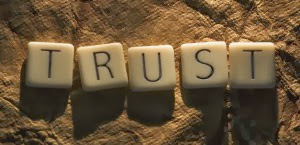Presentations are all about building and maintaining credibility. The idea of creating trust sounds easy, but it often requires more work than you might imagine. For instance, think back on the last 5 presentations you attended. Did the presenter earn your trust? Probably not. That’s my point.
The ideas I’m about to present aren’t rocket science, but are rather helpful reminders of things you already know but forgot you knew. I call them the 6 I’s of Credibility.
Here they are:
1. Ideation
 The best presenters think outside the box. They provide something new. They bring novel ideas to the table. They add value to their audience’s lives.
The best presenters think outside the box. They provide something new. They bring novel ideas to the table. They add value to their audience’s lives.
Ask yourself: Am I introducing a new idea to my audience?
2. Information
We live in a Google centric society so anyone can find anything they need at any given moment in time. Your responsibility becomes two-fold: 1) Find accurate and relevant information, and 2) Provide the right information to generate your intended result.
Ask yourself: Am I providing the right information to drive decision-making?
3. Influence
Influence only comes from confidence, and confidence comes from preparation. You need to practice at least 7-8 times before every presentation. Two times the night before and one time the morning of just won’t cut it.
Ask yourself: How can I increase my confidence?
4. Integrity
Anyone can easily spot a poser or faker. Don’t be that guy or gal. Find your own authentic voice and be yourself when on stage. It’s the best thing you can do for yourself and your audience.
Ask yourself: Am I being authentic?
5. Impact
If you asked your audience to invest 30, 60, 90 minutes of their lives to hear you speak, you must have a message that is memorable. You must leave a lasting impression or there was no reason for giving your talk in the first place.
Ask yourself: How can I make my presentation more memorable?
6. Ignition
Every presentation needs a purpose, and you can provide this by ensuring you have a call to action. You need to tell your audience what they need to do now that they have been exposed to your message. If you don’t, you risk diminishing the true value of your talk.
Ask yourself: Do I have a call to action?
Building and maintaining trust is not easy work. It requires awareness, careful planning, and a strong desire to do what’s right and most beneficial for your audience.
The ideas I’m about to present aren’t rocket science, but are rather helpful reminders of things you already know but forgot you knew. I call them the 6 I’s of Credibility.
Here they are:
1. Ideation
 The best presenters think outside the box. They provide something new. They bring novel ideas to the table. They add value to their audience’s lives.
The best presenters think outside the box. They provide something new. They bring novel ideas to the table. They add value to their audience’s lives.Ask yourself: Am I introducing a new idea to my audience?
2. Information
We live in a Google centric society so anyone can find anything they need at any given moment in time. Your responsibility becomes two-fold: 1) Find accurate and relevant information, and 2) Provide the right information to generate your intended result.
Ask yourself: Am I providing the right information to drive decision-making?
3. Influence
Influence only comes from confidence, and confidence comes from preparation. You need to practice at least 7-8 times before every presentation. Two times the night before and one time the morning of just won’t cut it.
Ask yourself: How can I increase my confidence?
4. Integrity
Anyone can easily spot a poser or faker. Don’t be that guy or gal. Find your own authentic voice and be yourself when on stage. It’s the best thing you can do for yourself and your audience.
Ask yourself: Am I being authentic?
5. Impact
If you asked your audience to invest 30, 60, 90 minutes of their lives to hear you speak, you must have a message that is memorable. You must leave a lasting impression or there was no reason for giving your talk in the first place.
Ask yourself: How can I make my presentation more memorable?
6. Ignition
Every presentation needs a purpose, and you can provide this by ensuring you have a call to action. You need to tell your audience what they need to do now that they have been exposed to your message. If you don’t, you risk diminishing the true value of your talk.
Ask yourself: Do I have a call to action?
Building and maintaining trust is not easy work. It requires awareness, careful planning, and a strong desire to do what’s right and most beneficial for your audience.



0 Comments